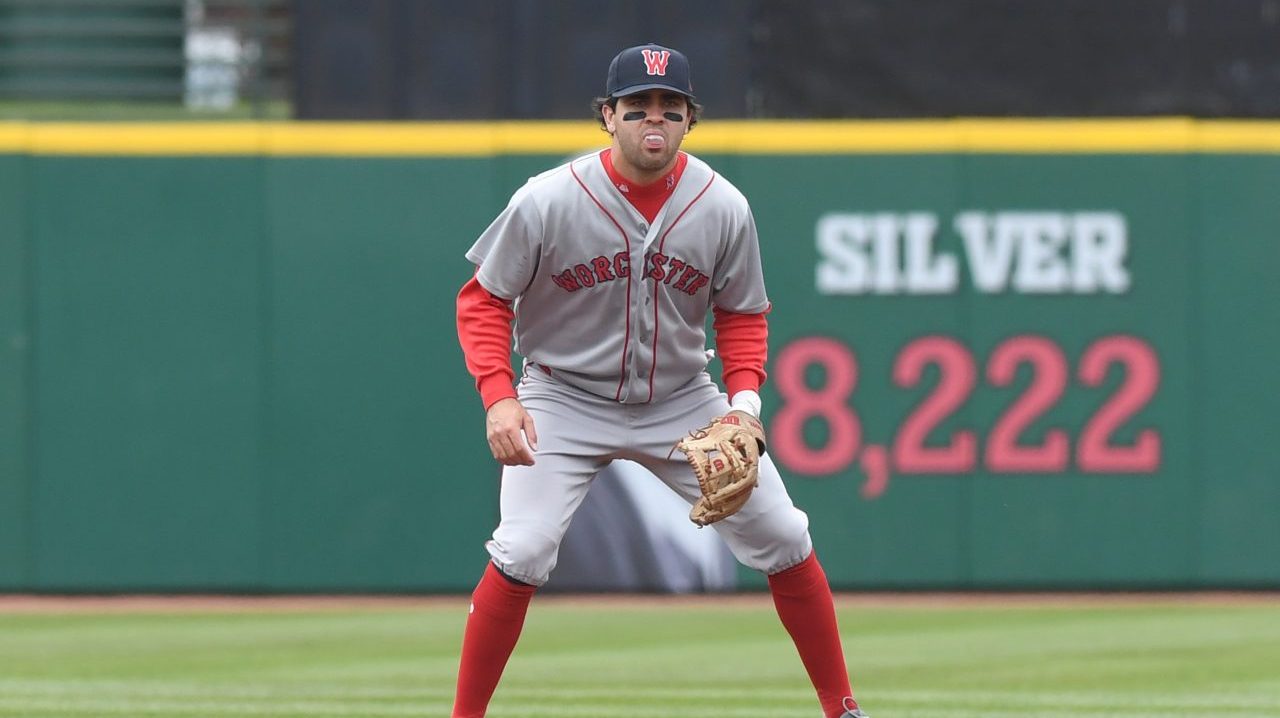HOUSTON -- They need to be sure if they're going to take away a home run. They weren't.
A fan interference call that turns two runs into an out in the penultimate round of the playoffs should not be allowed to “stand,” the term MLB uses when it defaults to the original call out of deference to the naked eye.
The only choices on a play of that magnitude -- the only options after Jose Altuve's would-be homer was reduced to an out on Wednesday in the Red Sox' 8-6 win over the Astros in Game 4 of the ALCS, a victory that gives them a 3-1 series lead and moves them to within one game of the American League pennant and a World Series berth -- should be to confirm the call or overturn it. The bar to make a fan interference call on a ball well over the fence in the first place should be exceedingly high, and the burden of proof on replay to uphold such a call should be high as well.
Defaulting to what was originally ruled is bad business in this spot. The default should be that the ball was going to land where it was clearly headed to and in fact did wind up, not that a circus catch from Mookie Betts definitively would have taken place. Unless it's overwhelmingly clear.
"There's no mechanism for me to change their mind, change their interpretation, change the fact that I thought the ball was a row or two into the stands," Astros manager A.J. Hinch said. "It doesn't matter what I think. I'm not in New York, and I'm not an umpire."
MORE FROM GAME 4
Either a play was interfered with by a fan as the rule describes or it was not. And if it means rewriting the rule book to be more clear about what should be the guiding principle in ruling fan interference, and subsequently installing cameras so that every angle can be properly reviewed -- heck, put lasers out there before they wind up behind the plate -- so be it.
Boston Red Sox
Find the latest Boston Red Sox news, highlights, analysis and more with NBC Sports Boston.
When in-game replay debuted for the first time 10 years ago, the revolutionary practice began as a failsafe for the most sacrosanct play in the sport: boundary calls on home runs. As baseball started down the path to its current replay system, the first matter it decided it needed to get right was its most important play.
"I believe that because of the configuration of ballparks, both new and old, that calling home runs is really much more difficult than it once was," former Commissioner Bud Selig said in 2008. "I don't believe in the use of instant replay for other things.”
They’re using it for other things now, but they still haven’t nailed down priority No. 1.
Ten years later, the reigning American League MVP, Altuve, hit a deep fly ball to right field in the first inning at Minute Maid Park that was very nearly robbed by the presumptive AL MVP, Betts.
Had it been completed, the grab would have been permanently added to highlight reels. (It will be there now for other reasons.) An astounding athlete, Betts took flight and timed his jump perfectly. As his left arm glided backwards toward the fans and made contact with at least one man, right-field umpire Joe West saw interference.
A review of the play did not produce evidence to overturn it or confirm it, and so the call simply stood.
So essentially, MLB said: We don’t know enough to determine whether West’s naked eye was right or wrong.
Ten years later, that should not be the case.
"I was just kind of going back, and I got a good jump on it,” Betts said. “And I was pretty positive I was going to be able to catch it. But as I jumped and went over, reached my hand up, I felt like somebody was kind of pushing my glove out of the way or something. And I got to see a little bit of the replay. I guess they were going to catch the ball and pushed my glove out of the way.”
How to fix this situation? Start with the rule itself regarding spectator interference, which needs clarity.
The first portion would suggest that Betts should have had no expectation of interference, jumping as he did.
“No interference shall be allowed when a fielder reaches over a fence, railing, rope or into a stand to catch a ball. He does so at his own risk.”
Betts was trying to make an extraordinary catch, racing to his left and leaping toward the wall, his arm elevated well above the fence, and possibly already into the stands.
But the rule then appears to contradict itself, with no guidance as to what matter should receive more weight.
“However, should a spectator reach out on the playing field side of such fence, railing or rope," the rule book reads, "and plainly prevent the fielder from catching the ball, then the batsman should be called out for the spectator’s interference."
One part of that sentence drove Wednesday's decision, while another appeared to be ignored.
West told a pool reporter after the game that “a spectator reached out over the stands and hit [Betts] over the playing field.”
How West could definitively see that from his angle on field is hard to believe. One would need to be flush with the wall with a situation where it's hard to tell who was encroaching on whom.
But beyond that uncertainty is a choice to ignore the part of the rule that requires a spectator to “plainly prevent” a catch for the ruling to be made.
MORE ON GAME 4
Betts’ catch would have been superb. West made a huge assumption, and in turn provided a huge alteration to the game, taking away a ball that was clearly going into the stands. With a player as elevated as Betts was and his arm so close to the stands, it's a huge amount of ground to grant the fielding player and team to say he would indeed haul it in and that he had the right to.
“Jose pays the biggest price because the trajectory of the ball looked like it was going to leave the ball park,” said Hinch. “But we assume -- and you can assume a lot with Mookie, because he's an incredible athlete -- we assume he's going to make this spectacular catch jumping as high as he can into the crowd.
“I asked for a review. And obviously they're going to give it to us. And they reviewed it and came back with the same outcome. So once the fan reaches past that line of the fence, I mean, we're going to penalize hitters every time. And so changed that whole inning.”
Hinch said he did not have evidence that a fan reached on to the field of play.
"I'm telling you what they said,” Hinch said. “No. We have a replay system and we have the video. But it doesn't matter what we think, anyway. They're going to tell us what they want to rule.”
More camera angles would also be a good road to improvement. Hinch, whose team is embroiled in an espionage story at the moment, had a sense of humor about that question after the Astros lost 8-6.
“Earlier we started the day with do we have too many cameras in the park,” Hinch said. “So, yeah, I wish we had an angle that was perfectly along the fence line that would show. That's the one camera we don't have.”
Ten years later, that shouldn't be.
Click here to download the new MyTeams App by NBC Sports! Receive comprehensive coverage of your teams and stream the Celtics easily on your device.




